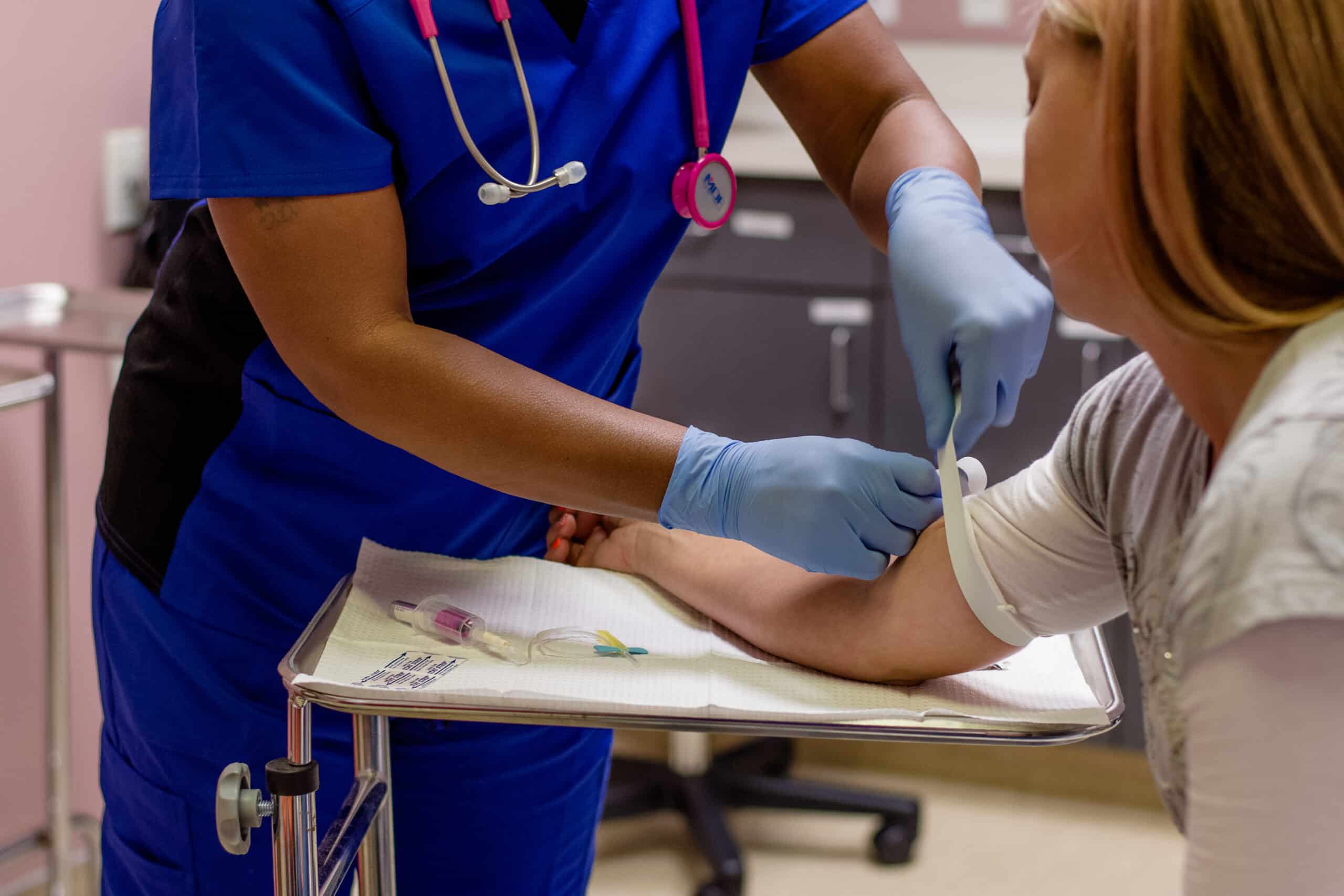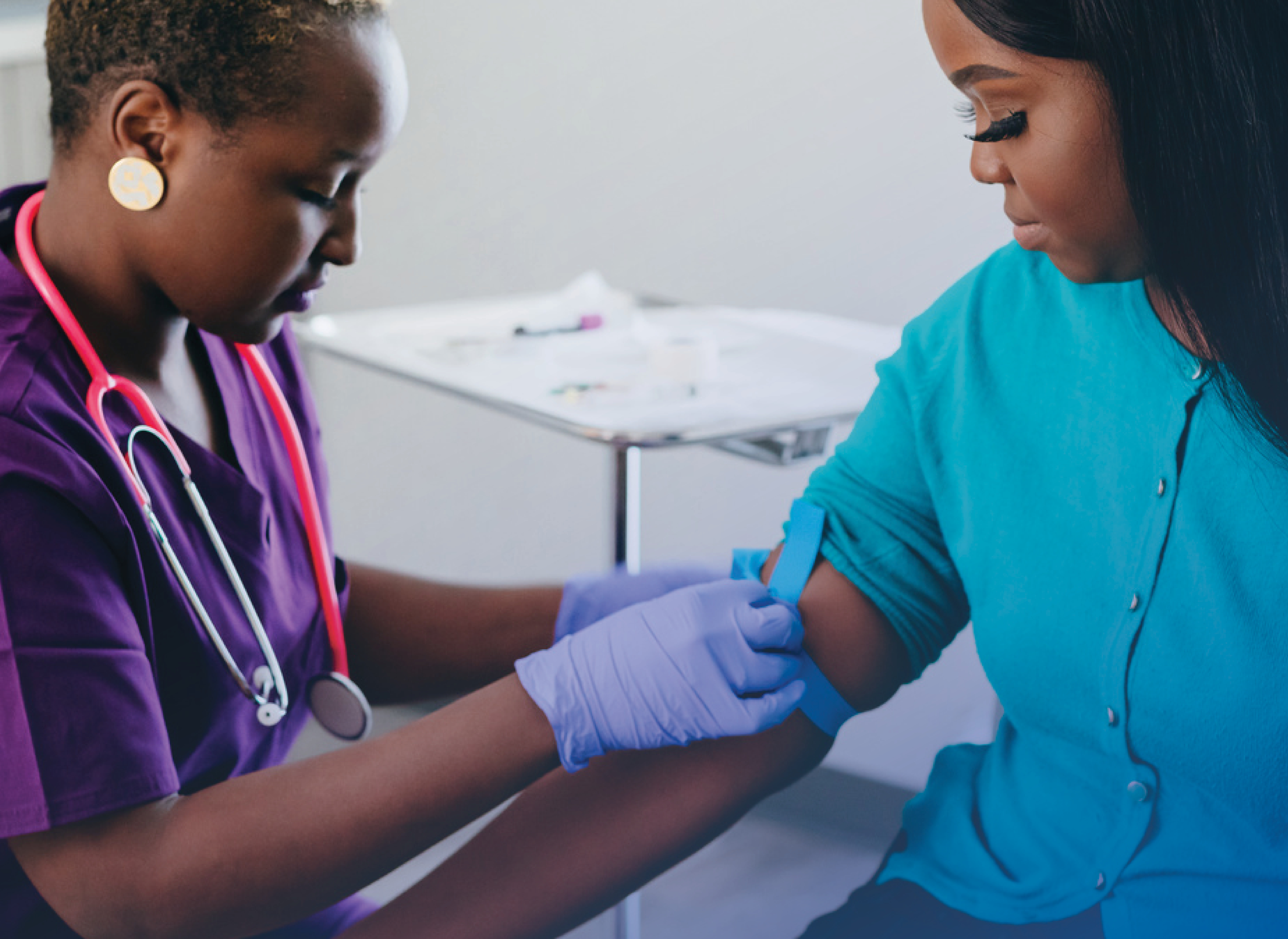Phlebotomy Training Course Success Tips: Networking Strategies
Phlebotomy Training Course Success Tips: Networking Strategies
Blog Article
The Path to Accreditation: Comprehending the Phlebotomy Training Program Journey and Its Significance
As you take into consideration the path to certification in phlebotomy, it's essential to comprehend the function you'll play in health care. Your training will cover essential abilities, from blood collection methods to patient interaction.

The Function of Phlebotomists in Medical Care
Phlebotomists play a necessary role in the medical care system, serving as the vital link in between clients and crucial diagnostic screening. You'll carry out blood attracts, ensuring examples are accumulated precisely and securely. Your knowledge aids in diagnosing clinical problems, keeping track of wellness, and guiding treatment choices.
In your day-to-day interactions, you'll require to develop trust with clients, making them really feel comfy during what may be a demanding experience. You are accountable for identifying and taking care of samples thoroughly to stop contamination or mistakes, which could impact test outcomes.
Past this, you'll often function along with medical professionals and registered nurses, connecting essential details concerning people' problems. By grasping your skills, you contribute meaningfully to patient care, making you an indispensable component of the clinical team.
Summary of Phlebotomy Training Programs
When exploring phlebotomy training programs, you'll find numerous kinds created to fit different schedules and finding out designs. Each program assists you develop important abilities like blood collection and person communication. Comprehending these options is vital to selecting the best path for your job.
Kinds Of Training Programs
A number of kinds of training programs are available for those looking to come to be skillful in phlebotomy. In addition, some hospitals and centers provide on-the-job training programs, providing functional experience while you discover. Whatever course you select, each program intends to outfit you with the required abilities for an effective phlebotomy career.

Key Skills Developed
Mastering phlebotomy needs a set of essential skills that are developed through extensive training programs. You'll discover technical skills like proper vein selection, needle insertion, and blood collection techniques. These hands-on practices assure you can execute treatments securely and effectively. Furthermore, communication skills are fundamental; you'll need to connect with people, clarify treatments, and put them secure. Understanding anatomy and physiology is critical, also, as it aids you find capillaries and understand the body's response to blood attracts. Lastly, you'll acquire knowledge of safety and security methods and infection control, guaranteeing you maintain a clean and sterile setting. Each of these skills is crucial for your success as a licensed phlebotomist, making you an important asset in any type of healthcare setup.
Secret Components of a Phlebotomy Program
In a phlebotomy training course, you'll concentrate on necessary topics that prepared for your future job. You'll participate in hands-on training that enables you to use what you've discovered in real-world setups. Both the curriculum and functional experience are vital for your success as a phlebotomist.
Core Curriculum Introduction
While pursuing a phlebotomy training course, you'll come across a core educational program developed to furnish you with basic abilities and knowledge. Phlebotomy school. This educational program typically includes composition and physiology, concentrating on the blood circulation system and understanding blood elements. You'll likewise find out about various kinds of blood collection methods, including venipuncture and capillary puncture methods
Furthermore, infection control and security procedures are vital elements, ensuring you know just how to maintain a clean and sterile atmosphere. You'll examine patient interaction, stressing communication and compassion, which are vital for alleviating individual anxiety.
Hands-On Training Experience
Obtaining hands-on experience is a crucial component of your phlebotomy training course. This sensible training enables you to apply what you have actually discovered in a real-world setup, improving your skills and self-confidence. You'll practice venipuncture strategies, discover just how to manage different kinds of specimens, and obtain knowledgeable about the devices used in the area. Under the assistance of seasoned trainers, you'll improve your skills, guaranteeing you're prepared for any kind of situation you could face.
In addition, you'll get the possibility to interact with clients, which is crucial for establishing your interaction abilities. This combination of technical effectiveness and social skills is vital for your success as a qualified phlebotomist. Ultimately, hands-on training is where theory satisfies technique, strengthening your knowledge and readiness for accreditation.
Qualification and Licensing Requirements
Before you can begin your job in phlebotomy, it is vital to comprehend the accreditation and licensing needs that differ by state. The majority of states require phlebotomists to hold an accreditation from an acknowledged company, such as the National Phlebotomy Organization or the American Culture for Professional Pathology. These certifications usually include passing a test that examines your expertise and abilities in the area.
In enhancement to certification, some states have specific licensing requirements. You may need to finish a certain number of hours in clinical practice, submit evidence of training, or undertake a history check. It is vital to investigate your state's laws to see to it you satisfy all needed requirements.
Staying informed about these needs not just assists you protect a setting but also enhances your credibility as a professional. By meeting these needs, you'll be well on your method to a successful career in phlebotomy.
Hands-On Training and Practical Experience
Hands-on training and practical experience are crucial parts of your phlebotomy education, as they allow you to use academic knowledge in real-world situations. Throughout your training, you'll take part in supervised venipuncture, find out appropriate techniques, and come to be acquainted with various blood collection tools. This direct involvement is essential for developing your confidence and sharpening your abilities.
You'll work very closely with skilled professionals that can direct you via the subtleties of client communication and sample handling. Each technique session not only reinforces your understanding yet also prepares you for the busy environment of medical care settings.
Additionally, lots of programs incorporate scientific rotations, permitting you to experience diverse setups, from healthcare facilities to outpatient clinics. This direct exposure helps you adjust to different difficulties and person requirements, ensuring you're well-prepared for your future function. Welcome these opportunities, as they're vital to ending up being a competent and thoughtful phlebotomist.
Challenges Dealt With During Training
While gaining hands-on experience is necessary, it's vital to identify the obstacles that can arise during your phlebotomy training. Additionally, mastering the skills required for blood draws takes method; you may have a hard time with method at first.
Time administration can likewise be an obstacle, as balancing theory, useful sessions, and personal commitments can feel intimidating. You may face varying finding out rates amongst your peers, causing sensations of insecurity if you believe you're falling behind. Finally, adapting to the various individualities of teachers can be tough, as each might have a special mentor style.
Recognizing these barriers beforehand can prepare you for success and assist you establish resilience throughout your training journey.
Job Opportunities After Qualification

As you acquire experience, you could even consider concentrating on areas like pediatric or senior citizen phlebotomy, providing to particular person needs. Some phlebotomists pick to advance their jobs by becoming laboratory professionals or pursuing additional education and learning in healthcare fields.
In addition, your qualification can lead to functions in training or managing new phlebotomists, enabling you to share your understanding. With the medical care industry constantly expanding, your abilities will certainly constantly remain in demand, leading the Phlebotomy Courses Near Me way for a steady and meeting job. Embrace the opportunities waiting on you!
Often Asked Inquiries
What Is the Regular Period of a Phlebotomy Training Course?
Phlebotomy training courses usually last around 4 to 8 weeks. You'll engage in hands-on method, classroom direction, and on-line understanding. Finishing this training prepares you for qualification and a fulfilling job in medical care.
Are Online Phlebotomy Courses Available?
Yes, on-line phlebotomy training courses are readily available. They supply adaptability and comfort, permitting you to examine at your own pace. Just verify the program is accredited to fulfill qualification demands and get important skills for your career.
Just How Much Does Phlebotomy Training Commonly Price?
Phlebotomy training normally sets you back in between $700 and $2,500, depending upon the program and location. You should take into consideration variables like program length, consisted of products, and hands-on experience when selecting the right training for you.
What Prevail Prerequisites for Phlebotomy Training?
Usual prerequisites for phlebotomy training usually consist of a senior high school diploma or GED, booster shots, and a background check. Some programs might also need standard health care knowledge or accreditations, guaranteeing you're gotten ready for hands-on training.
Can I Function While Completing My Phlebotomy Training?
Yes, you can work while completing your phlebotomy training. Lots of students balance work with their research studies, yet make specific to handle your time efficiently to ensure you fulfill both work and training dedications efficiently.
Report this page